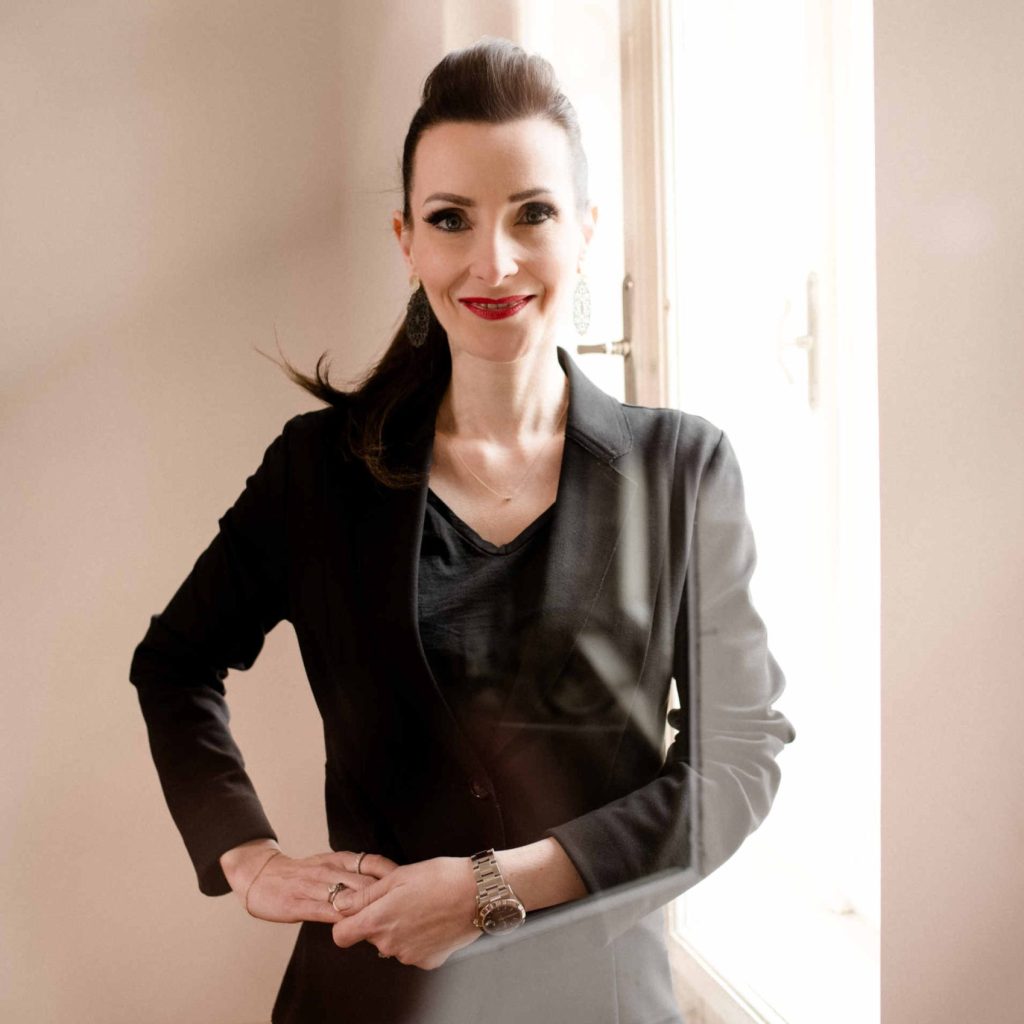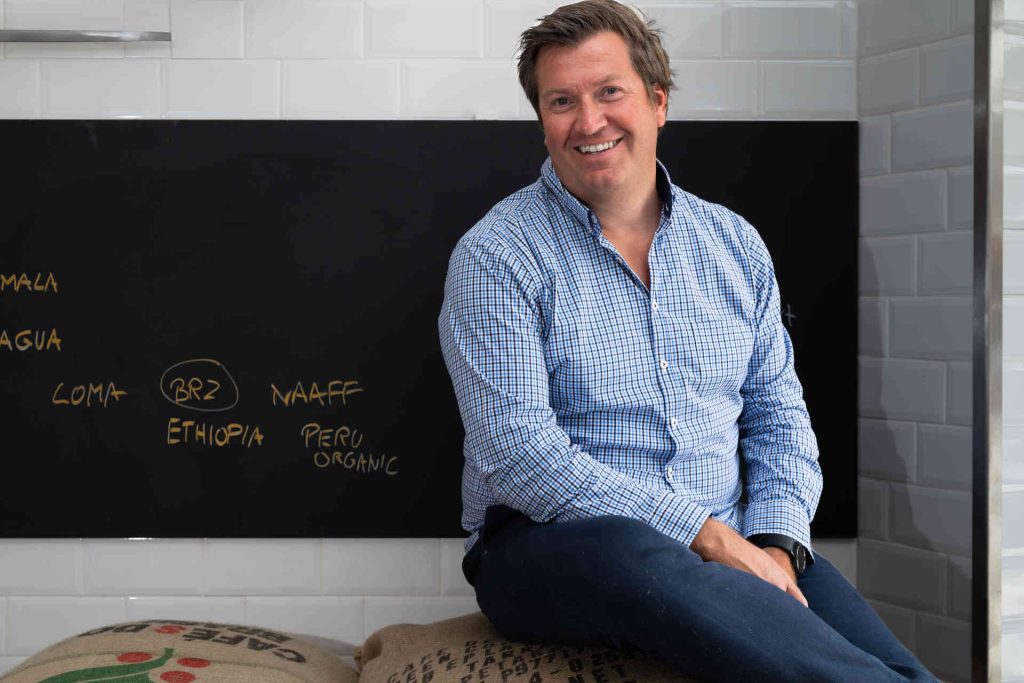

“Today more than ever, a café or coffee shop is a meeting place for young and old – a social meeting place that conveys a special atmosphere and identity in addition to good coffee.”
Between Viennese coffee culture and the modern third wave movement: At Cottage Roasters, artisan-roasted coffee, in-house pastries and an urban café concept come together. A visit to “Kleinen Diglas” on Fleischmarkt shows just how exciting coffee can be today.
Vienna and coffee - a liaison with history. But while many traditional establishments cling to old rituals, a family business is bringing a breath of fresh air to the cup: Elisabeth and Markus Schneider-Diglas are opening a new chapter in the heart of the city with Cottage Roasters. Since December 2024, Fleischmarkt 16 has not only smelled of fresh pastries, but also of freshly roasted specialty coffee - straight from Gersthofer Markt in Währing.
The idea: coffee as an experience, not a by-product. In the heart of the city center, Cottage Roasters combines the best of both worlds: Artisan roasting meets classic confectionery craftsmanship - served in a lovingly renovated restaurant with a modern bar concept and open coffee preparation on a Black Eagle Maverick, the top machine at the World Barista Championships.
How does this balancing act between tradition and trend succeed? Why is coffee a brand ambassador today? And what really matters when it comes to taste, quality and economic scaling? Markus Schneider-Diglas provides insights - straight from the cup.
ALEXANDRA GORSCHE: You run a modern coffee shop concept in a traditional location - what was the most important strategic idea behind this reorientation?
MARKUS SCHNEIDER-DIGLAS: On our numerous visits to specialty coffee shops, which often impress with excellent coffee, we kept coming across classics such as cookies, carrot cake and brownies. But genuine, home-made pastries remained a rarity. In traditional coffee houses, on the other hand, the pastries often take center stage, while the coffee appears to be a mere by-product - unfortunately often without the quality we desire.
As the “next generation” to take over, we wanted to resolve these contrasts and unite the strengths of both sides: outstanding coffee, perfectly matched with first-class, home-made pastries. A harmonious combination of quality and craftsmanship that reinterprets tradition.
Many hotels and restaurants serve coffee “on the go” - you turn it into a stage. Why is it worth staging coffee as an experience now more than ever?
A good coffee at breakfast invites you to enjoy another cup - or to drink it later in another place in peace. After a meal, it is often the crowning glory of a successful menu. But if this moment disappoints, it leaves a bland aftertaste that doesn't match the perfection of the menu.
Customers always return when the overall package is right - and excellent coffee plays a crucial role in this. The experience becomes all the more valuable when you not only enjoy the taste, but also know the origin of the beans and the philosophy of the master roaster. This transparency and quality give coffee a whole new meaning and invite you to come back again and again.
In your opinion, what are the three most important parameters for outstanding tasting coffee in the catering industry - and where do you often make the biggest mistakes?
The biggest mistake in the catering trade is usually the long, too hot “running through” of the coffee with too little coffee powder, with a poorly adjusted grind and too few cleaning cycles.
Guests are prepared to pay a fair price for excellent coffee - provided they recognize the value and the difference to the standard product.
You roast your own coffee and focus on medium roast levels with a clear origin. What can smaller businesses that don't have their own roaster learn?
In my opinion, coffee deserves the same status as wine - a world full of variety, characterized by origin, variety and roast. Only by tasting different nuances can you discover which characteristics really excite you. Coffee doesn't have to taste bitter or burnt; rather, it reveals a fascinating range of aromas. Fruit, acidity and body play just as decisive a role as they do in fine wines.
Rather than committing to large manufacturers in the long term, it is worth focusing on local roasters. They know how to respond to individual wishes with passion and precision and offer a quality that makes every sip an experience.
How important is the interplay between roasting and water quality - and what tools or standards do you recommend to restaurateurs for preparation?
As water makes up the largest part of every cup of coffee, its quality plays a crucial role. In Austria, we have a clear advantage over many other countries, where the taste is often adulterated by chlorine or other additives.
In order for the fine aromas that the roaster brings out with its carefully balanced roast profiles to be fully appreciated, the water should not dominate the taste, but rather support it. Water filters and the right brewing temperature are essential here, as they help to bring out the full potential of the coffee.
You work with a Black Eagle Maverick - a real top model. How do you rate the relationship between investment costs and quality of results?
We use different machine models in our cafés, restaurants and the new coffee shop. But one important finding has been confirmed: Even with identical beans, the investment in high-quality equipment and highly trained staff makes a noticeable difference. The quality of the coffee increases noticeably when every step of the preparation process is accompanied by precision, expertise and first-class technology.
Is it possible to scale high-quality coffee in the hospitality industry in an economically viable way - or is it still a luxury for boutique establishments?
Guests are prepared to pay a fair price for excellent coffee - provided they recognize the value and the difference to the standard product. Coffee prices have risen dramatically in the last twelve months, in some cases by 100%, which has narrowed the gap between mass-produced goods and top quality.
This makes it all the more important to clearly communicate the added value of high-quality coffee. Transparency about origin, sustainable production and trained baristas can noticeably increase the perceived value.
Interestingly, there is often a contrasting price structure: While first-class coffee is often offered more cheaply in coffee shops than standard products in traditional coffee houses, there is still room for improvement here - quality deserves recognition.
How do you organize logistics and replenishment with your own roastery - and what role does the coffee subscription play in your calculation?
Our coffee planning is always long-term: we buy about a year in advance and analyze exactly which blends or single origins have proven particularly successful. To guarantee freshness and quality, we roast weekly for our own operations and pack our coffees in small batches - both for the store and for the online store.
The coffee subscription currently still plays a subordinate role and is primarily aimed at repeat customers. With over 10 different varieties, we attach great importance to an individual initial consultation and a sensory experience on site - because personal contact and feeling the aromas often make the decisive difference.
What do guests really expect from coffee in restaurants today - and what do many hosts still underestimate?
Simply good coffee - free from extreme bitterness and burnt aromas. A pleasure that should be taken for granted, but is often underestimated. Hosts often neglect it without realizing the impact it has on the overall experience. But it's the small details that make the difference - and excellent coffee is definitely one of them today.
You combine experience, quality and speed - keyword knocking window & coffee to go. What works particularly well in Vienna and what can be transferred to other cities?
Local adaptation plays a decisive role: every neighborhood has its own dynamics and a coffee-to-go concept should be tailored to the needs of the respective target group. It often works better in tourist areas than in residential areas, where drinking coffee is more closely linked to everyday life at home.
What can be transferred everywhere is the appreciation for quality and craftsmanship. Especially on city breaks, people prefer the small, lovingly homemade café to the big chains - an authentic experience that conveys real enjoyment.
Which coffee trends do you currently see on the rise - and which of them do you think will also be economically relevant for hotels & restaurants?
Decaffeinated coffees are currently experiencing strong growth, as modern processes such as the Swiss Water Process - a chemical-free method - preserve the full flavor. This means that coffee can also be enjoyed in the late afternoon or evening without having to compromise on quality or aroma.
In general, the demand for sustainable coffee with a transparent origin is increasing. Guests particularly appreciate knowing where their coffee comes from - ideally sourced directly from producers, freshly roasted in the region and offered in the hotel next door. This combination of quality, regionality and sustainability creates a unique coffee experience. Coffee packs and special blends for at home can serve as additional sales and souvenirs in the hotel or restaurant.
What role does coffee play in the future viability of restaurants - as a sales driver, brand ambassador or community building block?
In larger cities, the demand for individual, experience-oriented coffee offerings is constantly increasing. If you want to stand out from the crowd, you can focus on regional roaster cooperations and brands with a local connection - an approach that not only creates authenticity, but also brings long-term economic benefits. Today more than ever, a café or coffee shop is a meeting place for young and old - a social meeting place that conveys a special atmosphere and identity in addition to good coffee.
If you could give a new hotel or an existing restaurant a single tip on the subject of coffee - what would it be?
Focus on local roasters and give good coffee the importance it deserves! Quality, regionality and craftsmanship make all the difference.
Name: Cottage Roasters 1010
Address: Fleischmarkt 16, 1010 Vienna
Opening hours: Tue-Fri 8:30-16:30 | Sat-Sun 9:30-16:30
Website: www.cottageroasters.at
Concept: Specialty coffee, own roasting, traditional pastries, modern bar service
Roastery: Gersthofer Markt, 1180 Vienna - small batch roasting on 15 kg drum
Bean style: 10 varieties - 8 single origins & 2 signature blends, named after streets in Währing
Machine: Black Eagle Maverick from Victoria Arduino
Atmosphere: Mix of Viennese coffee house charm & urban café cult - with an open view of the baristas
Guests are prepared to pay a fair price for excellent coffee - provided they recognize the value and the difference to the standard product.



Between Viennese coffee culture and the modern third wave movement: At Cottage Roasters, artisan-roasted coffee, in-house pastries and an urban café concept come together. A visit to “Kleinen Diglas” on Fleischmarkt shows just how exciting coffee can be today.